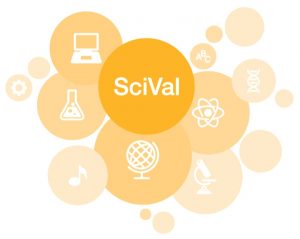Tuesday 13th April – Thursday 15th April
The three-day Writing Academy will enable you to develop the skills required to improve the quantity and quality of your publications and to develop a publication strategy which best represents you as an academic.
The academy is a great opportunity for academics who are new to publishing or would benefit from some additional direction and coaching.
You’ll have access to an external consultant who will advise you on techniques and style. You will also have the opportunity to discuss your ideas and issues with your peers.
The program and objectives for Writing Academies are as follows:
- Day 1. Planning and writing your research article
- Day 2. Developing a Strategy for Getting Your Articles Published, Read and Cited
- Day 3. Writing Day – to put into action everything discussed over the proceeding days
You will also have the opportunity to discuss your publishing goals and prepare a plan to accommodate writing within your day to day routines.
The trainer for the Writing Academy is Patrick Brindle.
Patrick divides his time between his training and consultancy business – Into Content – and his work for City, University of London. At City he is Programme Director on the Publishing MA and International Publishing MA. Patrick has a PhD in History from Cambridge University, and has worked in editorial positions across the social sciences at Pearson Education, Oxford University Press and SAGE Publications. Patrick provides staff and PhD level training on book and research paper writing, and on general publishing strategy, to a range of universities, including Oxford, UCL, Leicester, Royal Holloway, the SRHE and the ESRC’s National Centre for Research Methods. He also has a specialism in helping academics in writing about methodology.
If you are interested in booking a place, please contact RKEDF@bournemouth.ac.uk.
 Monday 8th June 10:00 – 12:00
Monday 8th June 10:00 – 12:00
 If you would like to take the opportunity of online impact training as it relates to the UKRI Case for Support or writing the impact sections of Horizon 2020 proposals, Professor Mark Reed of Fast Track Impact is offering free, interactive webinars, giving you access to his most popular training sessions. Due to a high level of interest, there are now a further 100 tickets available for each of the two courses below:
If you would like to take the opportunity of online impact training as it relates to the UKRI Case for Support or writing the impact sections of Horizon 2020 proposals, Professor Mark Reed of Fast Track Impact is offering free, interactive webinars, giving you access to his most popular training sessions. Due to a high level of interest, there are now a further 100 tickets available for each of the two courses below:
















 Second NIHR MIHERC meeting in Bournemouth this week
Second NIHR MIHERC meeting in Bournemouth this week Dr. Ashraf cited on ‘Modest Fashion’ in The Guardian
Dr. Ashraf cited on ‘Modest Fashion’ in The Guardian NIHR-funded research launches website
NIHR-funded research launches website MSCA Postdoctoral Fellowships 2025 Call
MSCA Postdoctoral Fellowships 2025 Call ERC Advanced Grant 2025 Webinar
ERC Advanced Grant 2025 Webinar Horizon Europe Work Programme 2025 Published
Horizon Europe Work Programme 2025 Published Horizon Europe 2025 Work Programme pre-Published
Horizon Europe 2025 Work Programme pre-Published Update on UKRO services
Update on UKRO services European research project exploring use of ‘virtual twins’ to better manage metabolic associated fatty liver disease
European research project exploring use of ‘virtual twins’ to better manage metabolic associated fatty liver disease